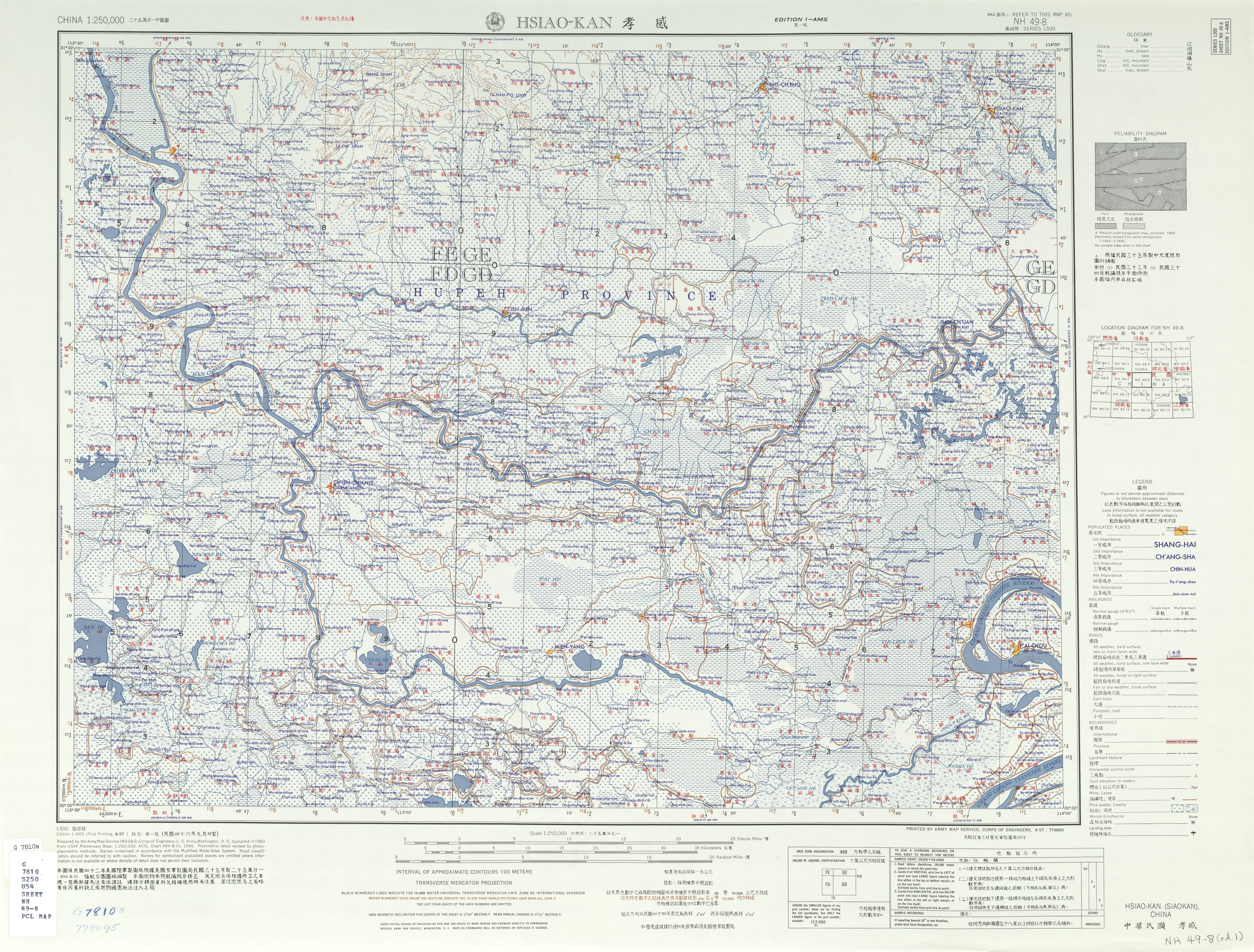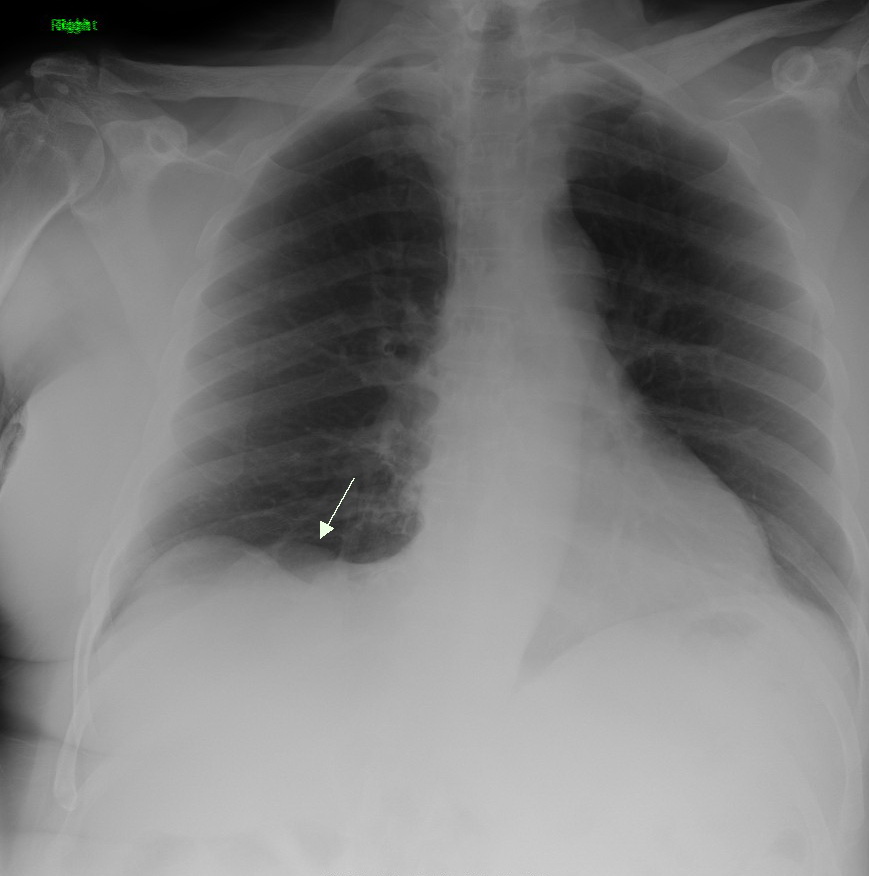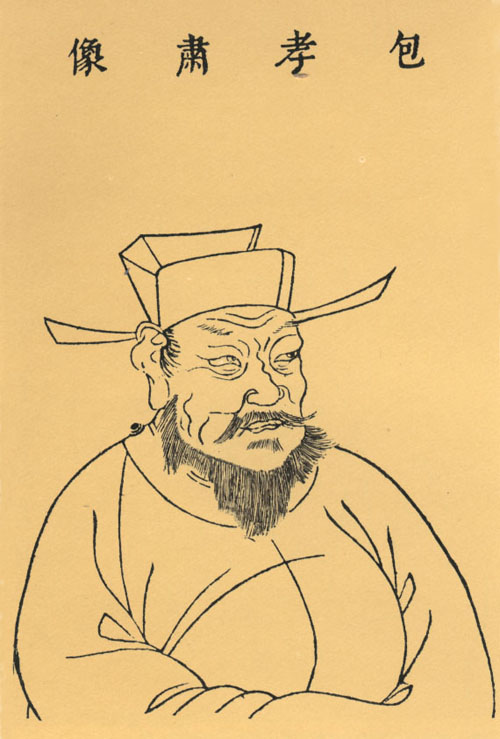|
Qian Ying (communist Politician)
Qian Ying ( zh, s=钱瑛, t=錢瑛, 14 May 1903 — 26 July 1973) was a Chinese politician who served as Minister of Supervision of the People's Republic of China from 1954 to 1959. Life Qian Ying was born in Qianjiang County, Hubei. From 1923, she lived in Wuhan, where she studied at the Hubei Women's Normal School. She became a member of the Chinese Communist Party in 1927. From September 1954 to April 1959, she was Minister of Supervision of the People's Republic of China. In 1972, during the Cultural Revolution, she was refused medical treatment and died in 1973 from lung cancer. She was rehabilitated in 1978. She has been described as a "female Judge Bao Judge Bao (or Justice Bao (包青天)) stories in literature and performing arts are some of the most popular in traditional Chinese crime fiction (gong'an fiction, ''gong'an'' fiction). All stories involve the Song dynasty minister Bao Zheng who s ..." (女包公). Notes References Sources * * * * 1903 bir ... [...More Info...] [...Related Items...] OR: [Wikipedia] [Google] [Baidu] |
Qian Ying ( zh, s=钱瑛, link=no), Minister of Supervision of the People's Republic of China 1954–1959
{{hndis ...
Qian Ying may mean: *Qian Ying (Kuomintang politician) ( zh, t=錢英, link=no), member of the Legislative Yuan of the Republic of China 1948– *Qian Ying (communist politician) Qian Ying ( zh, s=钱瑛, t=錢瑛, 14 May 1903 — 26 July 1973) was a Chinese politician who served as Minister of Supervision of the People's Republic of China from 1954 to 1959. Life Qian Ying was born in Qianjiang County, Hubei. From 1923 ... [...More Info...] [...Related Items...] OR: [Wikipedia] [Google] [Baidu] |
Ministry Of Supervision
The Ministry of Supervision of the People's Republic of China (MOS) was a Cabinet-level department of the State Council responsible for maintaining an efficient, disciplined, clean and honest government, and educate public servants about their duty and discipline. Many of its operations were merged with the Central Commission for Discipline Inspection of the Chinese Communist Party in 1993, meaning that the two institutions were effectively combined into a single body with mostly overlapping staff and jurisdiction. On 13 March 2018 it was dissolved and merged into the National Supervisory Commission. History The Ministry of Supervision was established as the People's Supervisory Commission in October 1949 after the founding of the People's Republic of China. It took on the present name Ministry of Supervision in September 1954. The ministry was abolished in April 1959. The ministry was reestablished in July 1987 by the Sixth National People's Congress. This led to successive lo ... [...More Info...] [...Related Items...] OR: [Wikipedia] [Google] [Baidu] |
Qianjiang, Hubei
Qianjiang () is a sub-prefectural city of south-central Hubei Province, China. The city spans an area of , and has a population of 946,277 as of 2010. Toponymy Qianjiang's name means river diving, with the first character referring to qián shuǐ, the Chinese verb for diving, and the second character, jiāng, meaning river. History During the Spring and Autumn period and the Warring States period, the area belonged to the independent state of Chu. In the Three Kingdoms period, the area of present-day Qianjiang was part of the Eastern Wu. Portions of present-day Qianjiang were ruled by the Sui dynasty as part of . Part of Qianjiang was incorporated into the Tang dynasty as Jiangling County (). In 857 CE, the area was placed under the . During the Five Dynasties and Ten Kingdoms period, the area belonged to the independent kingdom of Jingnan. Qianjiang County () was first organized in 965 CE, during the Song dynasty. In 1293, during the Yuan dynasty, local flooding prom ... [...More Info...] [...Related Items...] OR: [Wikipedia] [Google] [Baidu] |
Wuhan
Wuhan (, ; ; ) is the capital of Hubei Province in the People's Republic of China. It is the largest city in Hubei and the most populous city in Central China, with a population of over eleven million, the ninth-most populous Chinese city and one of the nine National Central Cities of China. The name "Wuhan" came from the city's historical origin from the conglomeration of Wuchang, Hankou, and Hanyang, which are collectively known as the "Three Towns of Wuhan" (). Wuhan lies in the eastern Jianghan Plain, at the confluence of the Yangtze river and its largest tributary, the Han River, and is known as "Nine Provinces' Thoroughfare" (). Wuhan has historically served as a busy city port for commerce and trading. Other historical events taking place in Wuhan include the Wuchang Uprising of 1911, which led to the end of 2,000 years of dynastic rule. Wuhan was briefly the capital of China in 1927 under the left wing of the Kuomintang (KMT) government. The city later serve ... [...More Info...] [...Related Items...] OR: [Wikipedia] [Google] [Baidu] |
Chinese Communist Party
The Chinese Communist Party (CCP), officially the Communist Party of China (CPC), is the founding and sole ruling party of the People's Republic of China (PRC). Under the leadership of Mao Zedong, the CCP emerged victorious in the Chinese Civil War against the Kuomintang, and, in 1949, Mao proclaimed the establishment of the People's Republic of China. Since then, the CCP has governed China with eight smaller parties within its United Front and has sole control over the People's Liberation Army (PLA). Each successive leader of the CCP has added their own theories to the party's constitution, which outlines the ideological beliefs of the party, collectively referred to as socialism with Chinese characteristics. As of 2022, the CCP has more than 96 million members, making it the second largest political party by party membership in the world after India's Bharatiya Janata Party. The Chinese public generally refers to the CCP as simply "the Party". In 1921, Chen Duxiu and ... [...More Info...] [...Related Items...] OR: [Wikipedia] [Google] [Baidu] |
Cultural Revolution
The Cultural Revolution, formally known as the Great Proletarian Cultural Revolution, was a sociopolitical movement in the People's Republic of China (PRC) launched by Mao Zedong in 1966, and lasting until his death in 1976. Its stated goal was to preserve Chinese communism by purging remnants of capitalist and traditional elements from Chinese society. The Revolution marked the effective commanding return of Mao –who was still the Chairman of the Chinese Communist Party (CCP)– to the centre of power, after a period of self-abstention and ceding to less radical leadership in the aftermath of the Mao-led Great Leap Forward debacle and the Great Chinese Famine (1959–1961). The Revolution failed to achieve its main goals. Launching the movement in May 1966 with the help of the Cultural Revolution Group, Mao charged that bourgeois elements had infiltrated the government and society with the aim of restoring capitalism. Mao called on young people to " bombard the hea ... [...More Info...] [...Related Items...] OR: [Wikipedia] [Google] [Baidu] |
Lung Cancer
Lung cancer, also known as lung carcinoma (since about 98–99% of all lung cancers are carcinomas), is a malignant lung tumor characterized by uncontrolled cell growth in tissues of the lung. Lung carcinomas derive from transformed, malignant cells that originate as epithelial cells, or from tissues composed of epithelial cells. Other lung cancers, such as the rare sarcomas of the lung, are generated by the malignant transformation of connective tissues (i.e. nerve, fat, muscle, bone), which arise from mesenchymal cells. Lymphomas and melanomas (from lymphoid and melanocyte cell lineages) can also rarely result in lung cancer. In time, this uncontrolled growth can metastasize (spreading beyond the lung) either by direct extension, by entering the lymphatic circulation, or via hematogenous, bloodborne spread – into nearby tissue or other, more distant parts of the body. Most cancers that originate from within the lungs, known as primary lung cancers, are carcinomas. The ... [...More Info...] [...Related Items...] OR: [Wikipedia] [Google] [Baidu] |
Bao Zheng
Bao Zheng (; 5 March 999 – 3 July 1062), commonly known as Bao Gong (), was a Chinese politician during the reign of Emperor Renzong in China's Song Dynasty. During his twenty-five years in civil service, Bao consistently demonstrated extreme honesty and uprightness, with actions such as sentencing his own uncle, impeaching an uncle of Emperor Renzong's favourite concubine and punishing powerful families. His appointment from 1057 to 1058 as the prefect of Song's capital Kaifeng, where he initiated a number of changes to better hear the grievances of the people, made him a legendary figure. During his years in office, he gained the honorific title Justice Bao () due to his ability to defend peasants and commoners against corruption or injustice. Bao Zheng today is honored as the cultural symbol of justice in Chinese society. His largely fictionalized ''gong'an'' and ''wuxia'' stories have appeared in a variety of different literary and dramatic mediums (beginning with ''Th ... [...More Info...] [...Related Items...] OR: [Wikipedia] [Google] [Baidu] |
1903 Births
Nineteen or 19 may refer to: * 19 (number), the natural number following 18 and preceding 20 * one of the years 19 BC, AD 19, 1919, 2019 Films * ''19'' (film), a 2001 Japanese film * ''Nineteen'' (film), a 1987 science fiction film Music * 19 (band), a Japanese pop music duo Albums * ''19'' (Adele album), 2008 * ''19'', a 2003 album by Alsou * ''19'', a 2006 album by Evan Yo * ''19'', a 2018 album by MHD * ''19'', one half of the double album '' 63/19'' by Kool A.D. * '' Number Nineteen'', a 1971 album by American jazz pianist Mal Waldron * ''XIX'' (EP), a 2019 EP by 1the9 Songs * "19" (song), a 1985 song by British musician Paul Hardcastle. * "Nineteen", a song by Bad4Good from the 1992 album ''Refugee'' * "Nineteen", a song by Karma to Burn from the 2001 album ''Almost Heathen''. * "Nineteen" (song), a 2007 song by American singer Billy Ray Cyrus. * "Nineteen", a song by Tegan and Sara from the 2007 album '' The Con''. * "XIX" (song), a 2014 song by ... [...More Info...] [...Related Items...] OR: [Wikipedia] [Google] [Baidu] |
1973 Deaths
Events January * January 1 - The United Kingdom, the Republic of Ireland and Denmark enter the European Economic Community, which later becomes the European Union. * January 15 – Vietnam War: Citing progress in peace negotiations, U.S. President Richard Nixon announces the suspension of offensive action in North Vietnam. * January 17 – Ferdinand Marcos becomes President for Life of the Philippines. * January 20 – Richard Nixon is sworn in for a second term as President of the United States. Nixon is the only person to have been sworn in twice as President ( 1969, 1973) and Vice President of the United States ( 1953, 1957). * January 22 ** George Foreman defeats Joe Frazier to win the heavyweight world boxing championship. ** A Royal Jordanian Boeing 707 flight from Jeddah crashes in Kano, Nigeria; 176 people are killed. * January 27 – U.S. involvement in the Vietnam War ends with the signing of the Paris Peace Accords. February * February 8 – A milit ... [...More Info...] [...Related Items...] OR: [Wikipedia] [Google] [Baidu] |
Deaths From Lung Cancer
Death is the irreversible cessation of all biological functions that sustain an organism. For organisms with a brain, death can also be defined as the irreversible cessation of functioning of the whole brain, including brainstem, and brain death is sometimes used as a legal definition of death. The remains of a former organism normally begin to decompose shortly after death. Death is an inevitable process that eventually occurs in almost all organisms. Death is generally applied to whole organisms; the similar process seen in individual components of an organism, such as cells or tissues, is necrosis. Something that is not considered an organism, such as a virus, can be physically destroyed but is not said to die. As of the early 21st century, over 150,000 humans die each day, with ageing being by far the most common cause of death. Many cultures and religions have the idea of an afterlife, and also may hold the idea of judgement of good and bad deeds in one's life (heav ... [...More Info...] [...Related Items...] OR: [Wikipedia] [Google] [Baidu] |
Chinese Communist Party Politicians From Hubei
Chinese can refer to: * Something related to China * Chinese people, people of Chinese nationality, citizenship, and/or ethnicity **''Zhonghua minzu'', the supra-ethnic concept of the Chinese nation ** List of ethnic groups in China, people of various ethnicities in contemporary China ** Han Chinese, the largest ethnic group in the world and the majority ethnic group in Mainland China, Hong Kong, Macau, Taiwan, and Singapore ** Ethnic minorities in China, people of non-Han Chinese ethnicities in modern China ** Ethnic groups in Chinese history, people of various ethnicities in historical China ** Nationals of the People's Republic of China ** Nationals of the Republic of China ** Overseas Chinese, Chinese people residing outside the territories of Mainland China, Hong Kong, Macau, and Taiwan * Sinitic languages, the major branch of the Sino-Tibetan language family ** Chinese language, a group of related languages spoken predominantly in China, sharing a written script (Chines ... [...More Info...] [...Related Items...] OR: [Wikipedia] [Google] [Baidu] |



.jpg)


